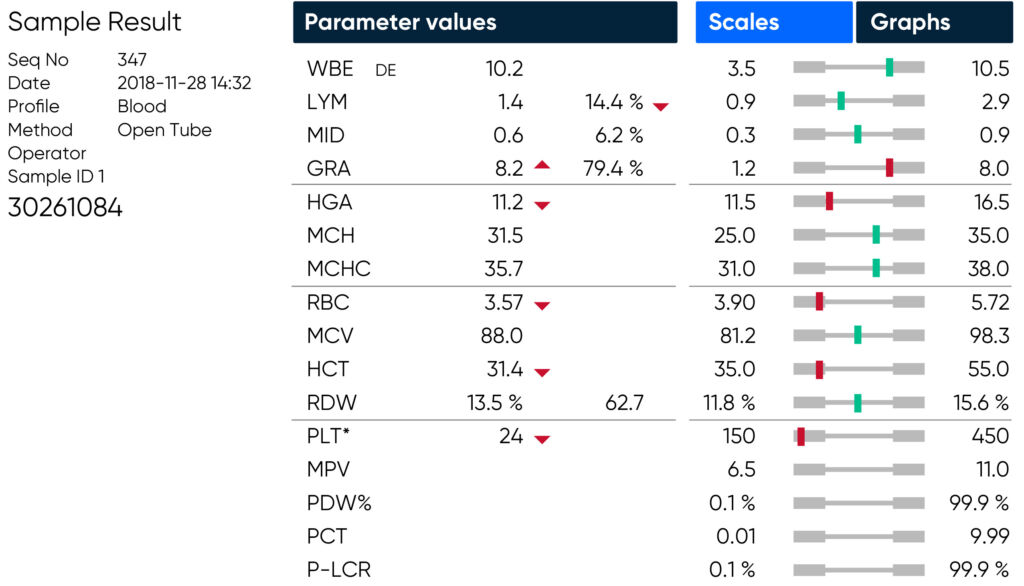Inverse relationship between parasitemia and platelet count
Malaria is a life-threatening mosquito-borne infectious disease mainly found in tropical countries. According to WHO, nearly half of the world’s population was at risk in 2021, with about 427 million cases and an estimate number of deaths of 619 000 (1). Proper treatment can stop mild cases from becoming severe.

Thrombocytopenia is a well-known characteristic of severe malaria (1). In a study by Mandala and co-workers at the Malawi University of Science and Technology, parasitemia levels (number of parasites/µL blood) were found to be inversely correlated to platelet (PLT) count (number of cells/L blood) (2). The PLT counts were significantly lower in acute phase for all investigated malaria types— uncomplicated malaria (UCM), severe malarial anemia (SMA) and cerebral malaria (CM)—compared with in the convalescence phase one month after treatment.
For accurate determination of PLT count in the critically low range, Boule hematology analyzers feature an PLT extended counting time functionality. When activated, the analyzer will count three times as many platelets to ensure a sufficiently large number to allow an accurate determination of the PLT count.

If PLT extended counting time is enabled and a low PLT is detected during analysis, the extended counting time will be displayed on the counting phase screen, and then indicated by an asterisk (*) adjacent to the PLT parameter on the result screen and in printouts and exported PDFs.
Learn more
Learn more about Boule’s support of diagnosing fever-related illnesses.
References
- WHO: Malaria – key facts. who.int (accessed 2023-05-22).
- Maina et al. Impact of Plasmodium falciparum infection on haematological parameters in children living in Western Kenya. Malaria Journal 9(Suppl 3), S4 (2010).
- Mandala et al. Acute Malaria in Malawian Children and Adults is Characterized by Thrombocytopenia That Normalizes in Convalescence. Journal of Blood Medicine 13, 485–494 (2022).
